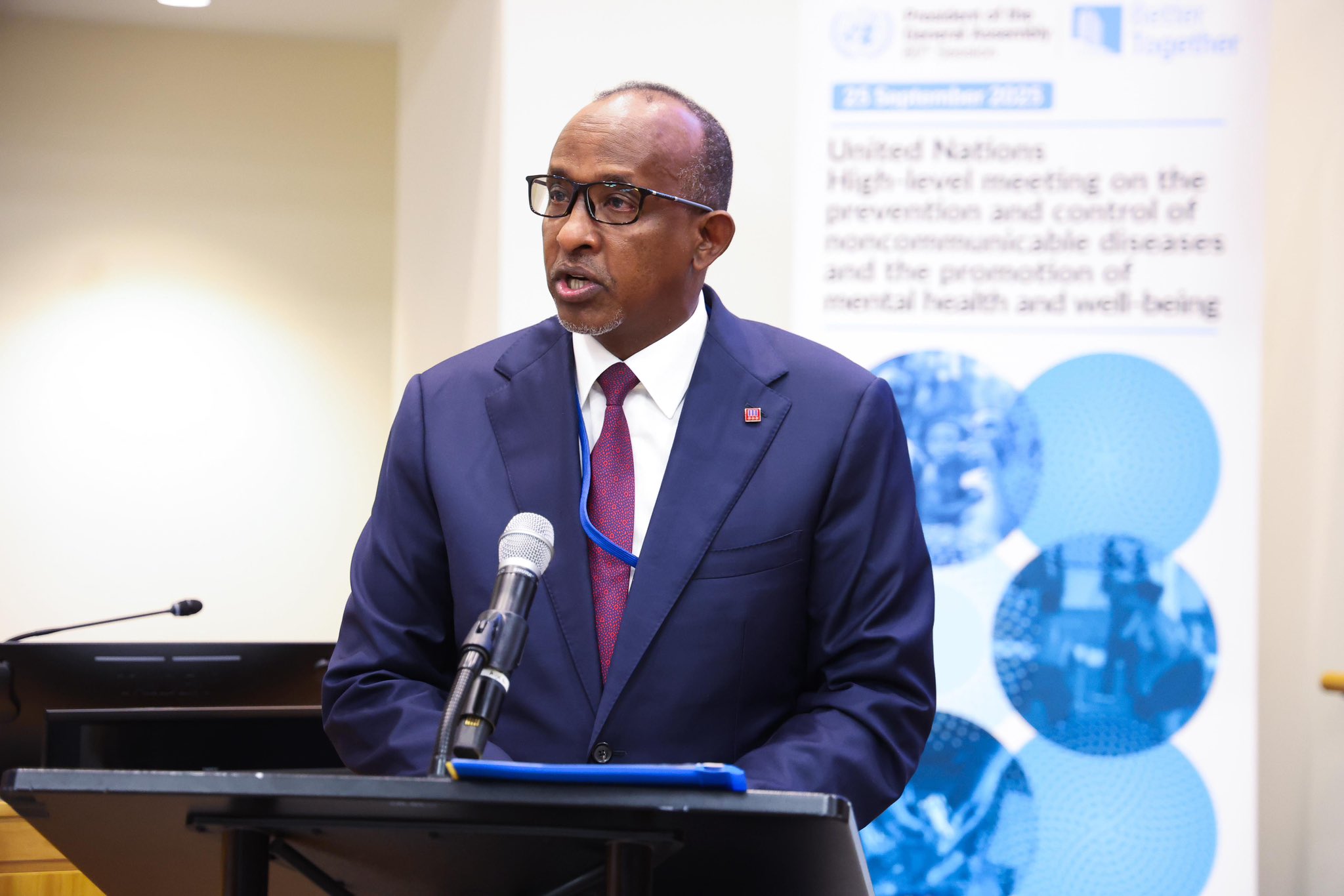
Kenya has called for stronger and sustainable global financing to confront
the growing burden of non-communicable diseases (NCDs) and mental health
conditions, warning that the crisis threatens both lives and development.
Speaking on behalf of President William Ruto at
the 80th Session of the United Nations General Assembly, Health Cabinet
Secretary Aden Duale said health must remain the foundation of dignity,
prosperity and shared progress.
“In Kenya, NCDs account for 38 percent of all
deaths, with more than half of adult hospital admissions linked to them. At the
same time, one in four Kenyans will experience a mental health condition in
their lifetime,” Duale told world leaders.
He highlighted Kenya’s ongoing reforms in
health care, including the integration of NCD and mental health strategies within
the Universal Health Coverage (UHC) programme.
So far, the government has deployed 107,000 community health promoters
equipped with diagnostic tools, and enrolled 26 million citizens into the new
Social Health Insurance programme, anchored on three funds to guarantee access
and financial protection.
Cancer care, he noted, has been decentralized
through the establishment of three regional oncology centres, alongside heavy
investment in specialist training, modern infrastructure and private sector
partnerships.
While commending the World Health Organization
(WHO), UN agencies and civil society partners for their support, Duale pressed
for more resources and stronger surveillance systems to tackle the crisis.
“The fight against NCDs and mental ill-health
will be won at the primary health care level, with the voices of people with
lived experience at the centre of policy-making and accountability,” he
emphasized.
The CS reaffirmed Kenya’s commitment to global
action on health equity, urging leaders to match their pledges with tangible
investments to ensure that health is not treated as a privilege but as a
universal guarantee.
He was accompanied at the UN Assembly by Dr.
Gladwel Gathecha, head of NCDs at the Ministry of Health, and Dr. Bashir Isaak,
head of Family Health.



















